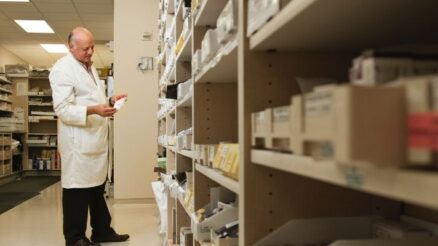Breastfeeding is the most natural thing when a woman delivers her baby, the milk will automatically fill in her breasts. This milk is perfect for the baby in every which way possible, specially designed to meet the needs of the baby at that particular stage. The first milk that the baby draws from the breasts is a yellowy, thick pre-milk called Colostrum, that is only there for 1-2 days and it’s great for the immune system of the baby. After that comes in the transitional milk that is thin in consistency and white; packed with fat, lactose, proteins and calories, which is best suited for that stage of the baby. After about 15 days of delivering the baby the proper breast milk starts to come in.
As the mothers are designed to produce breast milk most of them are able to provide a healthy, abundant supply of milk, but some mothers do face problems to meet the demand of the little one. Some mothers weary themselves down with worry and stress that they aren’t producing enough breast milk and their baby is not full. Well most of the causes of a low breast milk supply can be fixed quite easily. Breastfeeding drinks like herbal teas, smoothies, lattes and shakes are great at boosting that milk supply almost instantly. But before jumping the gun and devouring any drink, you first need to be sure about the problem.
We don’t realize this but there are many factors involved in the production and supply of breast milk. Although the process is very simple and needs no outward help but our habits, routine, diet, medication, health, latch and history all add up to it. Either they make things smooth and easy for us or make them even more challenging. Mothers tend to worry a lot about their supply of milk, even at the tiniest cry and discomfort shown by the baby, makes their mind racing. Milk supply booster work magically to increase milk supply but you need to be sure that you have a genuine low supply of milk.
In this article I will try to list down as many factors as I can that can be a reason for a low milk supply, read the article carefully and you may find the one that you find relevant to your situation. Another important thing is that, in case of a true low supply of milk the biggest indicator is the weight of the baby. If the weight gain is stagnant, the poops are inconsistent and peeing is not enough then only you should be tormenting yourself down.
1.Improper Latch
Complete drainage of breast milk from the breast is absolutely pivotal for a constant, healthy and sufficient supply of milk. The deflated breasts are a strong indication for the milk-making glands that more milk needs to be filled. But if the latch is not perfect the baby won’t be able to successfully drain the milk, leaving the milk in the breasts. The amount of milk drained is the amount of milk filled again.
2.Not Acquiescing To the Demand
Your baby is your biggest milk supply booster, trust me. The more you put him to the breasts the more milk will be produced. A nursing baby needs to feed for at least 3-4 times in day and 2-3 times at night. If you are a working mother, who is likely to skip feeding sessions, then you will face a low supply of milk. For a constant supply of milk, exclusive pumping, not missing night feeding sessions and no extended sleeping sessions are must follow rules. Feed your baby on demand, don’t put him on a schedule, this will curb his appetite and make things difficult for you and the little one.
3.Supplementing the Breastfeeding
Supplementing the baby with top feed will surely affect your breast milk production. As the baby is now getting full from another source, the amount of milk draining from your breast will reduce, resulting in a low production of milk that is enough to only fill the amount drained from the breasts. Exclusive breastfeeding can be demanding, tiring and exhausting but so beneficial for the child.
4.Having Birth Control Pills
Any medication that affects the hormones of the mother, like birth control pills can mess with the production of the milk, as milk production is also done by hormones called Prolactin and Oxytocin. Some mothers are hardly perturbed by these pills but others are significantly affected. The first step can be the discontinuation of the pills but consult your doctor and if these pills are vital for you then try boosting the supply with breastfeeding drinks.
5.Cold, Flu, Pain or Fever Medicines
Down with flu, fever and cold, makes things worse for a new mother. The fear of the child catching it and the tiredness is just painstakingly difficult. In this case oftentimes mothers pop Pseudoephedrine pills to get back to a better state. Sometimes these medications taken for a length of time can hinder the milk production. Ask your doctor to prescribe any other natural way to cure. Try to pump milk when not feeding to have a steady supply.
6.Growing Baby
When your little bundle of joy is on a growth spurt, be ready to witness a serious surge in appetite. The constant hunger pangs, frequent demand of feeding and after a feeding session an unsatisfied baby makes the mother worried and tricks her in thinking her supply has diminished. Keep putting the baby to your breast on demand and in no time the body will adjust to the spiked demand and so will the baby.
7.Stress, Overwork and Fatigue
Becoming a mother is no easy job, it’s truly fulfilling, rewarding and satisfying but at the same time, it’s exhausting. If you’re stressed mentally or physically, this will affect your milk supply to a great extent. Postpartum fatigue can also take a toll on your supply so take care, be kind to yourself.
Ending
If you find one or more points that can be the potential contenders to your low supply of milk then consult your doctor. Aim for a good latch, pump your breast milk, have breastfeeding drinks, take a good 8 hour sleep and make your diet healthy.





